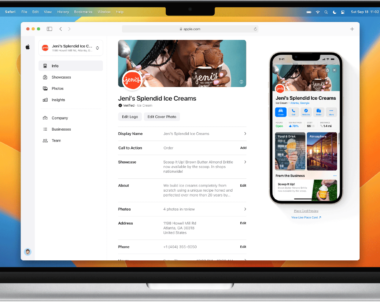News & Blog Google BERT: What Local SEOs Need to Know Now

Google announced that it has been rolling out a new update called BERT. BERT caused a massive buzz in the whole SEO industry since they deemed it as “the most important update in five years”. This particular update, called BERT, officially impacts 10% of search queries. That’s already a massive number since there are millions of searches made every single day.
But before we go into how this update affects SEOs and what you need to adjust, let’s first get into what this update is all about.
What is BERT?
BERT stands for Bidirectional Encoder Representations from Transformers. It is a neural network-based technique for Natural Language Processing (NLP) that was open-sourced by Google last year.
BERT isn’t necessarily an update to Google’s current algorithms but it is a technique to improve NLP. It allows Google to process words in search queries in relation to all the other words contained in the query – unlike the word per word process that Google has been using before.
Through this process, Google can, therefore, hopefully, understand the whole context of a word contained in the search query. This means that Google’s application of the BERT model enables them to do a better job of assisting users in finding useful information. The primary target for the BERT model are “longer, more conversational queries” where words like “for” and “to” greatly affect the meaning of the query – in my understanding, these are, more often than not, long-tail keywords.
BERT is currently affecting 10% of searches in the U.S. and it’s currently only applicable to the featured snippets in other languages.
HOW BERT WILL IMPACT THE SEO
Google’s announcement indicated that BERT will be applied on a query-by-query basis, affecting one in ten search queries on average. This still represents a massive number of results, which means businesses should be prepared to see significant shifts in rankings over the coming weeks.
BERT will impact both organic results and featured snippets, altering current rankings to better fit with contextual relevance and user intent. Google was kind enough to present us with a few examples of how users will see the change. In the sample below, BERT is able to understand how the word “to” interacts with the other keywords in the query, and presents information specifically on coming to America, rather than information on travel in either direction.
How You Can Optimize for BERT
According to Google, optimizing for BERT is impossible since there is “nothing to optimize”. It’s a direct echo to their statement during the release of RankBrain. However, SEOs always have ways of understanding an algorithm update in a creative and unique way that allows us to come up with strategies that will help our site navigate through Google’s ever-changing algorithms. With that said, here are some (simple) strategies that can help you with the recent BERT update.
Why we care
We care, not only because Google said this change is “representing the biggest leap forward in the past five years, and one of the biggest leaps forward in the history of Search.”
But also because 10% of all queries have been impacted by this update. That is a big change. We did see unconfirmed reports of algorithm updates mid-week and earlier this week, which may be related to this change.
We’d recommend you check to see your search traffic changes sometime next week and see how much your site was impacted by this change. If it was, drill deeper into which landing pages were impacted and for which queries. You may notice that those pages didn’t convert and the search traffic Google sent those pages didn’t end up actually being useful.
We will be watching this closely and you can expect more content from us on BERT in the future.


